In Cairo, Friday is the start of the weekend. It’s also a day of prayer, so today—for the first time since 2005—I heard a muezzin calling the faithful to prayer, his voice blaring through the noisy streets and over the ramshackle rooftops by way of an impressive loudspeaker system. Muezzins at midday in a country without violence are not nearly as scary as muezzins in the early morning darkness on streets laden with IEDs and populated by packs of mangy, feral dogs. In fact, today’s muezzin was clear and soothing, though not quaint in the way that church bells are on lazy days in Europe.
I’m now installed in the apartment of Will Rasmussen, who graduated from Harvard, not UVA as I previously thought. The apartment is incredible. It’s on the tenth floor of a high rise in a neighborhood called Zamalek, Cairo’s less ritzy equivalent to the Isle St. Louis. Zamalek is an island in the middle of the Nile, and home to Cairo’s embassy district. Most of the architecture bears a distinctly French motif, beautiful and ambitious in its stature but still subtle and conservative. The architects who designed Zamalek’s citizen palaces where not prone to Arabesque over-ornamentation. If God could descend from the heavens and give Zamalek a good powerwashing, the neighborhood would sparkle. But since that’s not going to happen, I’ll have to content myself with looking past the layers upon layers of dust and diesel exhaust to envision the buildings as they once were, clean and magisterial, guarded by servants in livery, inhabited by the princes of the world.
Cairo was a British protectorate during the colonial age, but for some reason the architectural and cultural impact of Napoleon’s brief visit seems to have quite an effect as well. Three times already I’ve heard phrases combining Arabic and French. What would one call that combinated, Frarabic? Arabench? I don’t know. Anyway, yesterday I was walking by a group of carriage drivers idling alongside their clearly exhausted horses, and one of them pointed to his carriage, looked at me, and said, “Toi aussi?” You too? I’m not even sure if that’s proper French, but it was an unmistakable attempt at it. I replied, “No thanks.” Today I stopped to allow a man to pass me on the sidewalk, and he said, “Shukuran, monsieur.” Instinctively I said, “Pas de problème.” Then, only a few minutes later, I was sitting in a trendy little coffee shop called Costa Coffee and began to feel small, toothy creatures gnawing at the lining of my stomach. I remembered that I hadn’t eaten anything substantial since the falafel I ate at about 3 p.m. the day before. I ordered a croissant, and the waitress said, “Avec?” And I said, “Aux amandes.” “Oui,” she said. The experience was entirely weird. I don’t look French.
Last night I met up with a guy named Theo May who’s been living here for about two months, but this is his second long-term stay in Cairo. He came as a student in 2006 for six months, and now he’s here as a journalist for a year. He graduated from Middlebury. I got his e-mail address from Will, and I received a quick and enthusiastic reply to the first e-mail I sent. He met me at Costa Coffee and took me over to his friend’s apartment, another astonishing penthouse with a massive terrace. His friend, Tom, works for an American construction company that’s engaged in the business of outfitting Cairo’s elite with luxury apartments, or something like that, I didn’t get the whole story. Tom is a financial analyst for the company, which isn’t Halliburton (I asked). We watched some of the Democratic National Convention and talked about the media coverage of the upcoming elections. It was good to talk to other human beings after three days of rather isolating travel.
After we left Tom’s, Theo and his girlfriend took me to their favorite shisha café. Shisha is the gummy, often flavored tobacco smoked out of a hookah in the Middle East. It’s become a fad among U.S. college students to smoke shisha at parties, but I’ve never been crazy about it, although I do enjoy it for the sake of blowing smoke rings. The smoke is thick and plentiful and not nearly as harsh as cigarette smoke, although that’s probably because I’ve only smoked the flavored stuff, which I think might make me a woman. Oh well. Poor Theo answered my barrage of questions graciously, and today he even helped me get a cell phone. We met around noon for coffee and I had a cell phone a couple of hours later. The process was totally painless, nothing at all like registering for a cell phone in the States, which can take hours. I bought the phone for about $40, including a sim card (the little chip that holds the phone’s unique data), and then I prepaid another $20 for minutes. I signed a contract, but the contract was totally optional and only exists to ensure that the phone guy doesn’t sell my number to another person. I’m under no obligation to Vodafone whatsoever, no monthly bills, no e-mails, no early termination fee, no registration fee, nothing. My number is: +2 016-531-7465. Try to call me, see if it works.
Getting into Will’s apartment last night was an adventure of the highest degree, and one that resulted in a completely drenched shirt, jeans, and underwear, and an exhausted pair of legs. I took a cab from the hotel in Garden City to Zamalek, and had a bit of trouble explaining that my destination was 13 Marashli St., mostly because I don’t know the word for street and the cab driver didn’t know Marashli. He tried to drop me off about five times, turning around and saying, “This okay? Okay?” I’d say, “No. Marashli,” and he’d return the pedal to the metal. Of course I had no clue which street was actually Marashli, because only one out of every twenty-eight streets has a sign, and only a fraction of those have English translations. I finally felt secure after the driver stopped for directions the third time. Third time’s the charm. It’s a truism the world over. When I saw a police officer point to the corner and say, “Aiwa, blah Marashli blah blah,” that’s when I knew I was okay. The cab driver ripped me off to the tune of $1, but I was too frazzled to care, and much more worried about how I was going to search for the street number while carrying the 375 lbs. of luggage slung on every appendage of my body (Yes, my shoulder still hurts like a bastard. It’s prone to sudden agitation; for example, today I reached for a handful of water from the faucet only to realize that it was a few degrees from boiling, and when I jerked my arm and lobster-pink hand back in horror, my shoulder reminded me that it has not healed. OOWWWW!!). I walked this way and that way and this way again, until finally I saw a sign for a dentist across the street, with the words 13 A Marashli St. written in English underneath his name. Eureka, je suis arrivé.
Naturally, I wondered if there might also be a 13 B Marashli, but since the building was flanked on either side by restaurants, I figured my odds were good that I’d found the right place. So I strolled on up to the elevator behind two wide-eyed tenants of the building, who were peering at me with jaws agape, trying to figure out what beast of burden was hiding underneath that giant yellow L.L. Bean bag that appeared to be stuffed with human corpses. I smiled and said, “Salaam alyekum.” They smiled, and then got out of there as quickly as they could. Already, what little hair I have was drenched in sweat, and I must’ve looked an awful sight. All I knew was that Will’s apartment was on the 10th floor, and that it wasn’t the one next to the elevator, but the one across the hall. I pushed the button for the elevator. Nothing. A head peaked out from an open door and said, “Broken.” Shit. I looked at the staircase and started to cry. Not really, but I wanted to. Instead of crying, I started the long march. Immediately, I knew I was in for trouble. The building had half floors, and I couldn’t remember whether Egyptian buildings use the European system, in which the ground floor is 0 and the first floor is 1, or the American, in which the ground is 1 and the next floor is 2 (the logical system of the two, obviously). I dropped the bags on what I calculated to be the 5th floor, caught my breath, and then continued up, counting every second floor on my fingers until I got to . . . 9. Shit. Shit shit shit.
I figured they must be counting half floors as whole floors, so I tromped down the stairs back to the ground floor and began my count again. When I arrived at my bags, I had counted to ten. This must be it. My key slid in easily. My heart jumped. The key wouldn’t turn. Okay, I thought, they must be counting the ground floor as 0, so 10 must be the next one up. The next one up was very far away from the elevator, not even on the same floor, and also belonged to an agency called Red Sea-Fort Arabesque, Inc. I didn’t try my key. Instead, I grabbed my bags and walked down the stairs, out into the sweltering night. I sat on my duffel bag in despair, resigned to wait a half hour for Theo to appear and save me.
Meanwhile, the pharmacist was looking sympathetically and curiously at the pathetic creature seated, or rather sprawled, on the big yellow duffel bag outside his door. He must’ve been wondering if the poor man had died of heat exhaustion. He was only slightly alarmed when the creature rose and strolled into his pharmacy, asking, “Do you know if there is another 13 Marashli?” It was a question I should’ve asked before my impromptu stairclimber session. “Aiwa,” he told me, “13 Marashli is on the other side of the restaurant. Welcome to Egypt.”
The elevator in 13 Marashli worked beautifully, and so did my key.
Saturday, August 30, 2008
It’s just after 3 a.m. in Cairo, and I’m sitting in my single room at the Garden City House Hotel. This room has air-conditioning and a private bath. For those luxuries, I had to pay an additional six or seven dollars a night, bringing my daily fee to a whopping 125.00 Egyptian Pounds, or about $23.00. Just outside my window, there’s a very busy traffic circle where several police officers, dressed in snappy white uniforms and black berets, are sitting together on the curb, smoking and joking as we used to say in the Army. The police are everywhere. They are young, and from what I can tell, they are friendly. My guess is that police duty is one way of performing one’s national service, but that’s just a guess. The cars are whizzing by outside. One of them just cruised by blaring what must be the Egyptian version of the Mexican Hat Dance from its horn. A few minutes ago, a taxi crept by with alternating red and green headlights. It’s a party in Garden City tonight, I don’t even need to go to the disco.
Beyond the traffic circle there’s a long, brightly lit bridge that ends in a place I can’t see, it’s blocked by palm trees. The bridge goes over the Nile River. The Nile River. Let me repeat that, the Nile River. It’s a stone’s throw away from my window, and from where I’m sitting on the bed, I can see the lights of the buildings on the far side reflected in the rippling water—which is funny, because I can make out those lights more clearly in the water than on the buildings themselves. I came prepared with the knowledge that Cairo is one of the top ten most polluted cities on Earth, but it’s weird to actually see and taste the pollution in such a clear way. It’s hanging in the air, I can almost touch it, I am touching it, it’s touching me anyway. It’s in my lungs, and that worries me. But what can I do? There’s a very tall minaret on the horizon, maybe a half-mile away. It’s brightly lit, but almost indistinguishable in the haze. Like anything, I’m sure I’ll get used to it.
The Garden City House Hotel is nicer than I expected it would be. It’s old and decrepit—that much I expected—but it’s not dirty, and it even looks like the moulding around the doors and windows has been freshly painted. The sheets smell good, the towels smell good, the bathroom is clean. It reminds me of my first apartment on Monument Avenue in Richmond; no matter how hard I tried to clean that place, there was simply a limit to my powers, and that limit was imposed by the state of the building itself. Constructed in the 1920’s, it had seen one to many abusive tenants, gravity had taken its toll on the plaster walls and ceilings as well as the framing angles of the cabinets and doors, and all varieties of insects and critters had long since discovered how to pick the locks and colonize the guts of the building. But when it was clean, as clean as it could get, it was wonderful. It had character, and I always had the sense that it was a very human habitation. One often hears the expression “lived in” to describe a place with character. 3006 Monument Ave. #3 was nothing if not lived in, and Garden City House Hotel has that same appeal. It also has a vintage elevator that looks like it came directly from a run-down Paris tenement. Apparently there was an architectural epoch in Cairo during which the city planners tried very hard to frenchify. They bulldozed narrow alleyways and constructed wide, tree-lined boulevards; they built block-long apartment buildings with tall windows and ample balcony space. I saw some of those buildings on the way in from the airport. They’re in a bad state of disrepair now, but I’m sure they still have some charm hidden away somewhere. It’s my goal during this year to find it.
My flights were great, nothing whatsoever to complain about. British Airways flight attendants are superb—friendly, efficient, and professional. The seats were comfortable and I had and empty seat next to me on both legs. Also, like Air France, British Airways isn’t stingy with the booze. I try to get my hands on as much alcohol as I can when I fly overseas because it helps me sleep and I enjoy experimenting with the effects of alcohol at altitude. I could be way off, but I think the cabins are pressurized to about six thousand feet or so. That’s plenty high to make your brain float a little more easily. It’s also the reason why your potato chips are often about to explode out of the bag. Anyway, I got my hands on three mini bottles of Johnny Walker, which happens to be my scotch of choice—I can’t afford anything else in the States, I can’t actually afford Johnny Walker—and two mini bottles of Bordeaux with my meals.
When I woke up an hour before my flight landed in Cairo, I was sufficiently cotton-mouthed and hung over. Nothing that a little bit of coffee didn’t cure, which explains why I am still awake and writing at nearly four o’clock in the morning after two solid days of travel. Mom and I left Richmond for Pennsylvania, where we dropped off my dad’s car, at just before 10 a.m. on Tuesday, August 26. I arrived at Dulles Airport after eight hours of driving at approximately 8 p.m. My flight for Heathrow left at 11 p.m., arrived around lunchtime in London, and then I had a six-hour layover. My flight from London to Cairo left at 5:45 p.m. and arrived a few minutes before 1 a.m. Cairo time. The Cairo authorities didn’t hassle us much, and I was in a cab with my bags only about twenty minutes after I got off of the plane. Some guys tried to hustle me a little bit for a cab, but I knew that I shouldn’t pay more than 80 Pounds (AUC instructions), so I felt confident that I wouldn’t get ripped off. I did not, however, feel confident that I would get to my hotel after I listened to four or five long, frustrated cell-phone conversations in Arabic between the cab driver and the dispatcher, punctuated often by the only phrase I understood: Hotel Garden City House.
But here I am. The driver stopped and asked some police, then stopped and asked some other cab drivers, then took a few very sharp and confusing turns down some dark and confusing streets, and then he asked one final guy on the side of the street, “Fondo Garden City House?” The guy pointed to the end of the block, and there was the sign, hiding beneath a grimy façade and surrounded by cabbies. I had arrived.
Tomorrow will be exciting. I’ve gotten in contact with a guy who just graduated from Middlebury, who could be classified only as a friend of a friend of a friend (I don’t even know the original friend that well to begin with). This guy—Theo—is here to work as a journalist and improve his Arabic. Fortuitous, no? I’m also supposed to meet up with the girlfriend of the second friend, the original friend of a friend, to get a key to that second friend’s apartment, where he said I could stay while I look for my own place. He’s also working as a journalist, this original friend of a friend. He works for Reuters, and he came to Cairo after working for various publications in Beirut and Dubai. He’s a UVA grad too, and that’s how he knows the original friend, the one I don’t know that well but who was nice enough to start this chain of acquaintances that has resulted in such wonderful fortuitousness.
I’m excited. Very excited.
Beyond the traffic circle there’s a long, brightly lit bridge that ends in a place I can’t see, it’s blocked by palm trees. The bridge goes over the Nile River. The Nile River. Let me repeat that, the Nile River. It’s a stone’s throw away from my window, and from where I’m sitting on the bed, I can see the lights of the buildings on the far side reflected in the rippling water—which is funny, because I can make out those lights more clearly in the water than on the buildings themselves. I came prepared with the knowledge that Cairo is one of the top ten most polluted cities on Earth, but it’s weird to actually see and taste the pollution in such a clear way. It’s hanging in the air, I can almost touch it, I am touching it, it’s touching me anyway. It’s in my lungs, and that worries me. But what can I do? There’s a very tall minaret on the horizon, maybe a half-mile away. It’s brightly lit, but almost indistinguishable in the haze. Like anything, I’m sure I’ll get used to it.
The Garden City House Hotel is nicer than I expected it would be. It’s old and decrepit—that much I expected—but it’s not dirty, and it even looks like the moulding around the doors and windows has been freshly painted. The sheets smell good, the towels smell good, the bathroom is clean. It reminds me of my first apartment on Monument Avenue in Richmond; no matter how hard I tried to clean that place, there was simply a limit to my powers, and that limit was imposed by the state of the building itself. Constructed in the 1920’s, it had seen one to many abusive tenants, gravity had taken its toll on the plaster walls and ceilings as well as the framing angles of the cabinets and doors, and all varieties of insects and critters had long since discovered how to pick the locks and colonize the guts of the building. But when it was clean, as clean as it could get, it was wonderful. It had character, and I always had the sense that it was a very human habitation. One often hears the expression “lived in” to describe a place with character. 3006 Monument Ave. #3 was nothing if not lived in, and Garden City House Hotel has that same appeal. It also has a vintage elevator that looks like it came directly from a run-down Paris tenement. Apparently there was an architectural epoch in Cairo during which the city planners tried very hard to frenchify. They bulldozed narrow alleyways and constructed wide, tree-lined boulevards; they built block-long apartment buildings with tall windows and ample balcony space. I saw some of those buildings on the way in from the airport. They’re in a bad state of disrepair now, but I’m sure they still have some charm hidden away somewhere. It’s my goal during this year to find it.
My flights were great, nothing whatsoever to complain about. British Airways flight attendants are superb—friendly, efficient, and professional. The seats were comfortable and I had and empty seat next to me on both legs. Also, like Air France, British Airways isn’t stingy with the booze. I try to get my hands on as much alcohol as I can when I fly overseas because it helps me sleep and I enjoy experimenting with the effects of alcohol at altitude. I could be way off, but I think the cabins are pressurized to about six thousand feet or so. That’s plenty high to make your brain float a little more easily. It’s also the reason why your potato chips are often about to explode out of the bag. Anyway, I got my hands on three mini bottles of Johnny Walker, which happens to be my scotch of choice—I can’t afford anything else in the States, I can’t actually afford Johnny Walker—and two mini bottles of Bordeaux with my meals.
When I woke up an hour before my flight landed in Cairo, I was sufficiently cotton-mouthed and hung over. Nothing that a little bit of coffee didn’t cure, which explains why I am still awake and writing at nearly four o’clock in the morning after two solid days of travel. Mom and I left Richmond for Pennsylvania, where we dropped off my dad’s car, at just before 10 a.m. on Tuesday, August 26. I arrived at Dulles Airport after eight hours of driving at approximately 8 p.m. My flight for Heathrow left at 11 p.m., arrived around lunchtime in London, and then I had a six-hour layover. My flight from London to Cairo left at 5:45 p.m. and arrived a few minutes before 1 a.m. Cairo time. The Cairo authorities didn’t hassle us much, and I was in a cab with my bags only about twenty minutes after I got off of the plane. Some guys tried to hustle me a little bit for a cab, but I knew that I shouldn’t pay more than 80 Pounds (AUC instructions), so I felt confident that I wouldn’t get ripped off. I did not, however, feel confident that I would get to my hotel after I listened to four or five long, frustrated cell-phone conversations in Arabic between the cab driver and the dispatcher, punctuated often by the only phrase I understood: Hotel Garden City House.
But here I am. The driver stopped and asked some police, then stopped and asked some other cab drivers, then took a few very sharp and confusing turns down some dark and confusing streets, and then he asked one final guy on the side of the street, “Fondo Garden City House?” The guy pointed to the end of the block, and there was the sign, hiding beneath a grimy façade and surrounded by cabbies. I had arrived.
Tomorrow will be exciting. I’ve gotten in contact with a guy who just graduated from Middlebury, who could be classified only as a friend of a friend of a friend (I don’t even know the original friend that well to begin with). This guy—Theo—is here to work as a journalist and improve his Arabic. Fortuitous, no? I’m also supposed to meet up with the girlfriend of the second friend, the original friend of a friend, to get a key to that second friend’s apartment, where he said I could stay while I look for my own place. He’s also working as a journalist, this original friend of a friend. He works for Reuters, and he came to Cairo after working for various publications in Beirut and Dubai. He’s a UVA grad too, and that’s how he knows the original friend, the one I don’t know that well but who was nice enough to start this chain of acquaintances that has resulted in such wonderful fortuitousness.
I’m excited. Very excited.
Friday, August 15, 2008
Testicle Festival
Not on the agenda at the Rocky Mountain School of Photography, but unavoidably close to my cabin on Rock Creek: The Annual Testicle Festival.
I couldn't resist this extra credit self-assignment. I got some of the best pictures of the week at the Testy Fest, and I got to eat Rocky Mountain Oysters for the first time. I thought they were pretty good, but at $7.50 an order, they'll have to remain a delicacy.
The Testicle Festival happens every year at the Rock Creek Lodge about 20 miles east of Missoula. It's a biker free-for-all, but it attracts other, more mainstream folks as well. Including the dentist from Portland, Oregon, who won the Rocky Mtn. Oyster Eating Competition. He ate 49 slices in five minutes, or something like that, and then had to have a "ball off" with the man who tied him.
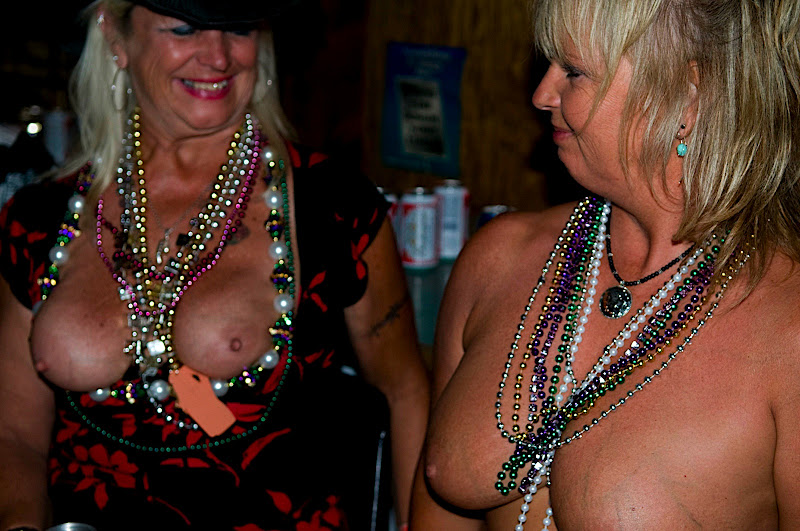
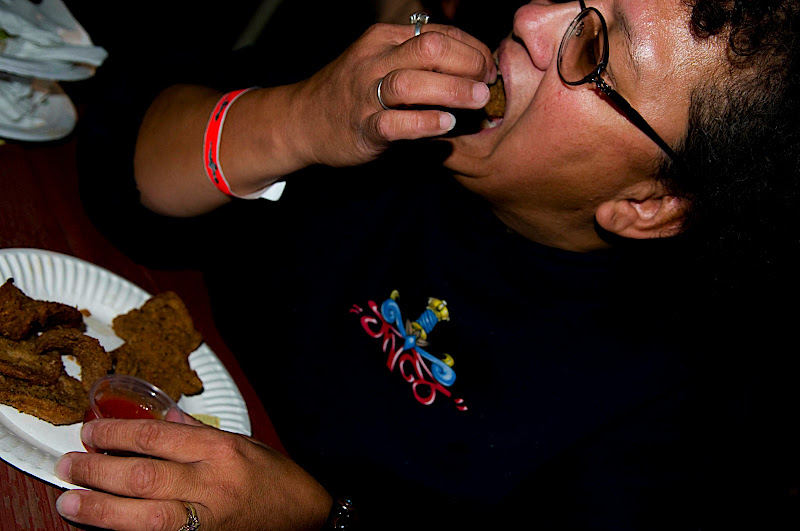





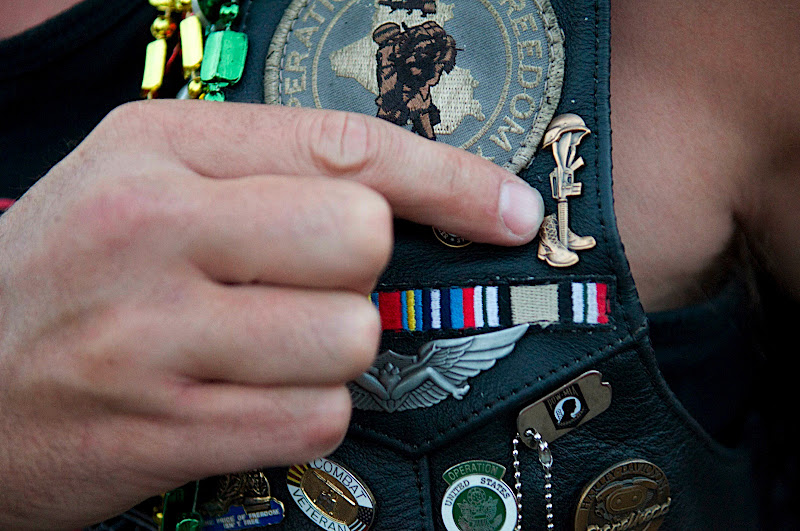


I couldn't resist this extra credit self-assignment. I got some of the best pictures of the week at the Testy Fest, and I got to eat Rocky Mountain Oysters for the first time. I thought they were pretty good, but at $7.50 an order, they'll have to remain a delicacy.
The Testicle Festival happens every year at the Rock Creek Lodge about 20 miles east of Missoula. It's a biker free-for-all, but it attracts other, more mainstream folks as well. Including the dentist from Portland, Oregon, who won the Rocky Mtn. Oyster Eating Competition. He ate 49 slices in five minutes, or something like that, and then had to have a "ball off" with the man who tied him.










Fun Shots from the Western Montana Fair
We went to the fair at night just to play around with all of the lights and movement. These are some of my results.
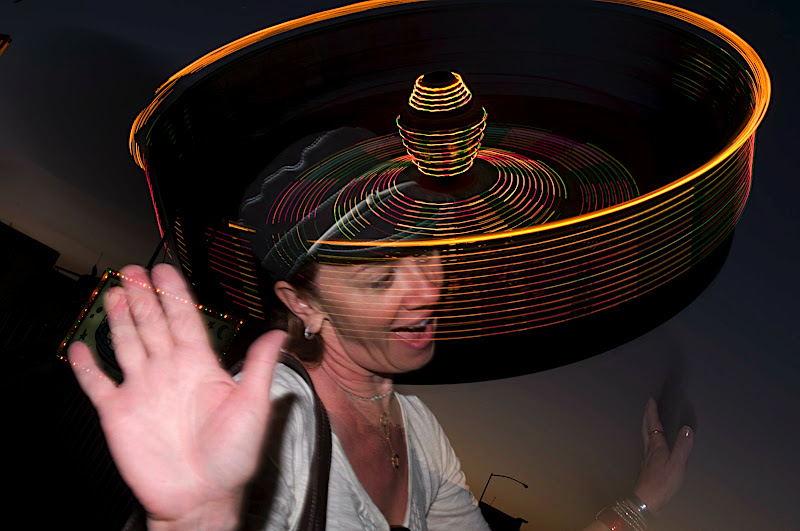
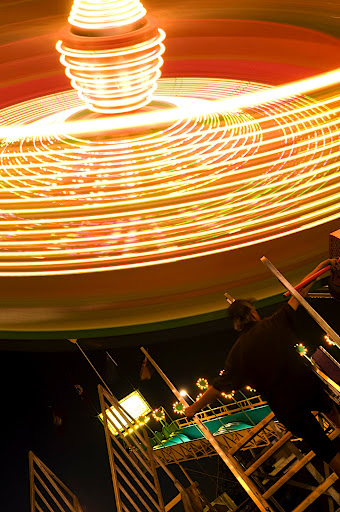








Ashlyn
The day after the 4-H competition, we returned to the fair grounds to photograph the Western Montana Rodeo Princess competition. The princess and queen contestants were between about eight and sixteen years-old. Coincidentally, I ended up photographing Willy's sister Ashlyn.
Our assignment was to tell the story of the competition according the Life Magazine seven picture formula, which goes like this (roughly):
Opener: a wide or medium angle shot that establishes the scene, atmosphere.
Medium: a medium shot that moves in closer on the principal subject, explaining the subject's role in the story.
Close-up: a detail shot of some interesting aspect of the subject's personal effects or mannerisms.
Portrait: a tightly cropped head shot or environmental portrait.
Signature: I don't really know what this means, but I guess it's some kind of shot that shows the crux of the action, or something like that.
Sequence: for our purposes, we used one action shot instead of a series of shots that show a progression of events.
Clincher: a closing shot that signifies the end of the action, suggesting either unresolved or resolved status for the subject.
Here are the photos of Ashlyn that I used, and a few more.
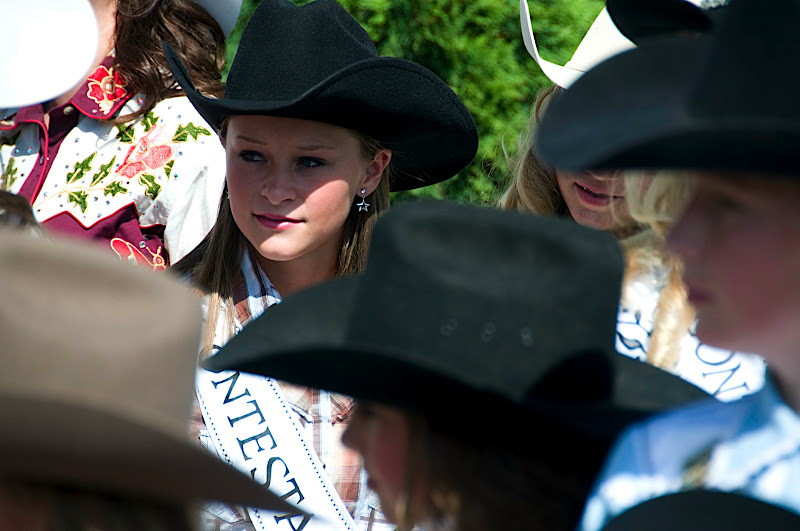

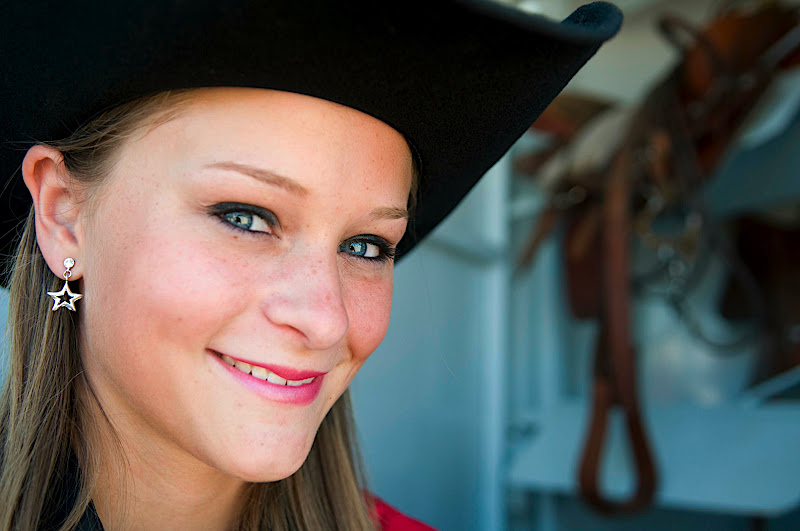
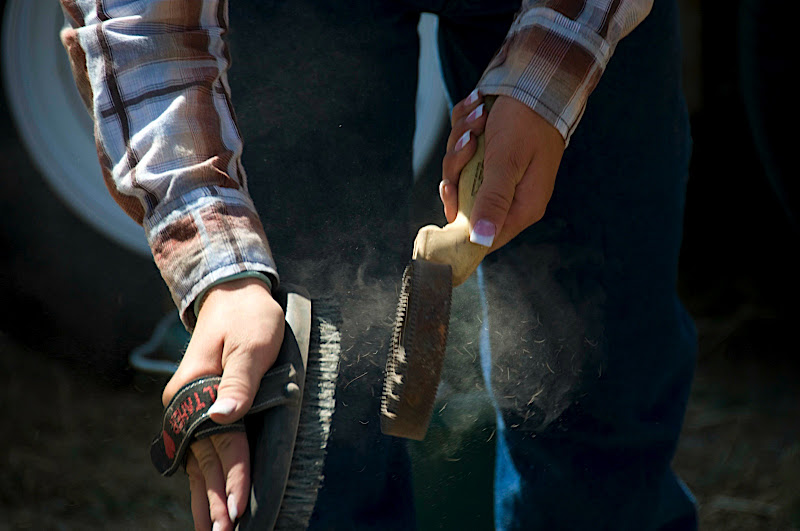

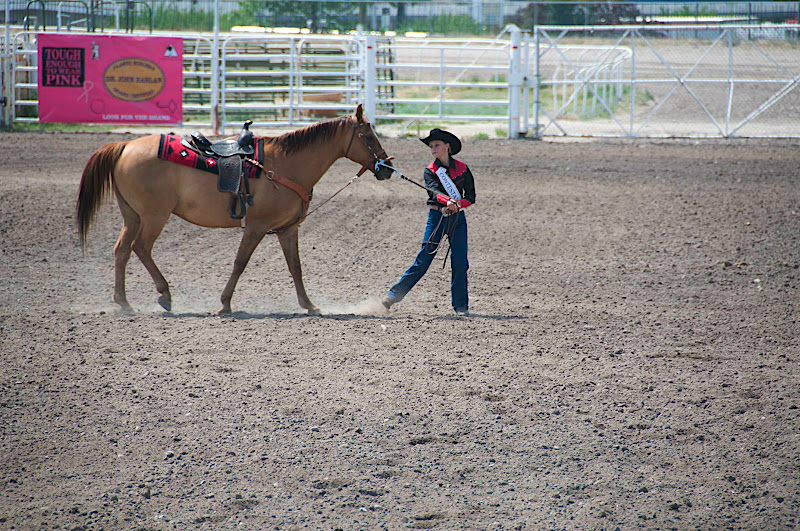


Our assignment was to tell the story of the competition according the Life Magazine seven picture formula, which goes like this (roughly):
Opener: a wide or medium angle shot that establishes the scene, atmosphere.
Medium: a medium shot that moves in closer on the principal subject, explaining the subject's role in the story.
Close-up: a detail shot of some interesting aspect of the subject's personal effects or mannerisms.
Portrait: a tightly cropped head shot or environmental portrait.
Signature: I don't really know what this means, but I guess it's some kind of shot that shows the crux of the action, or something like that.
Sequence: for our purposes, we used one action shot instead of a series of shots that show a progression of events.
Clincher: a closing shot that signifies the end of the action, suggesting either unresolved or resolved status for the subject.
Here are the photos of Ashlyn that I used, and a few more.








Willy
For one of our most fun projects, we attended the 4-H competition at the Western Montana Fair. We had to find a kid who was participating in the contest and photograph him or her with their chosen animal. Again, we were supposed to tell a story in three pictures. I immediately saw a little boy with an ear to ear grin and a big cowboy hat trying to wrestle his Rhode Island Red hen out of its cage, and I knew he'd be my subject. Willy was about half the size and nearly half the age of the other competitors in the novice category. Willy's only eight, and stands only about four feet tall. He's my hero. Here are the best photos of Willy.
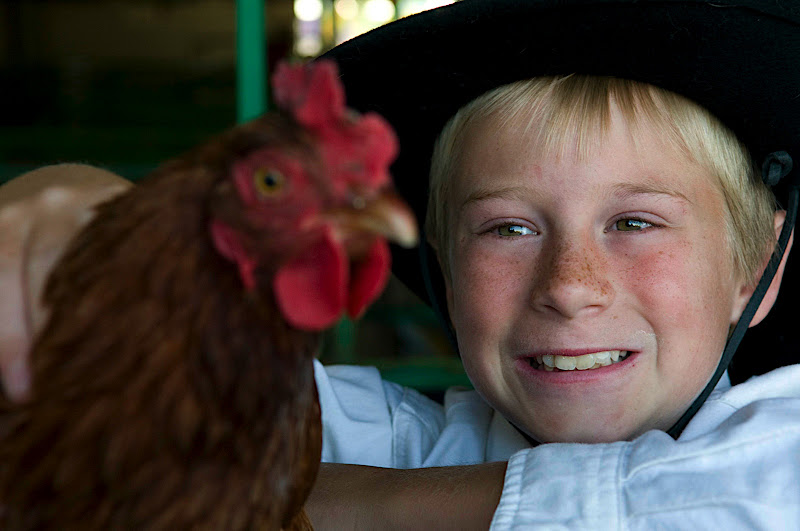

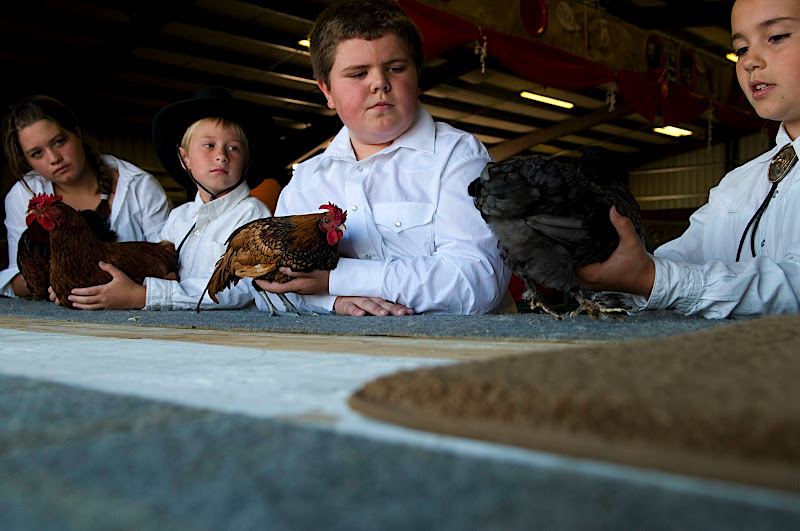
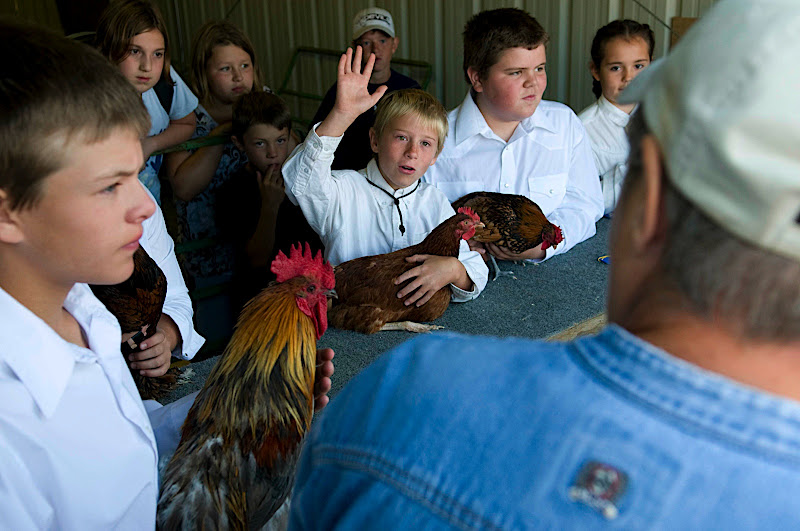






Portraits
We had a series of portrait assignments during the week. Some were in the studio, some were outdoors. The studio was a fun change because I'd never done anything like that before. I'm far from a fine arts photographer, so it was nice to pretend to be one for a day or two. Here are the winners from the various portrait sessions.

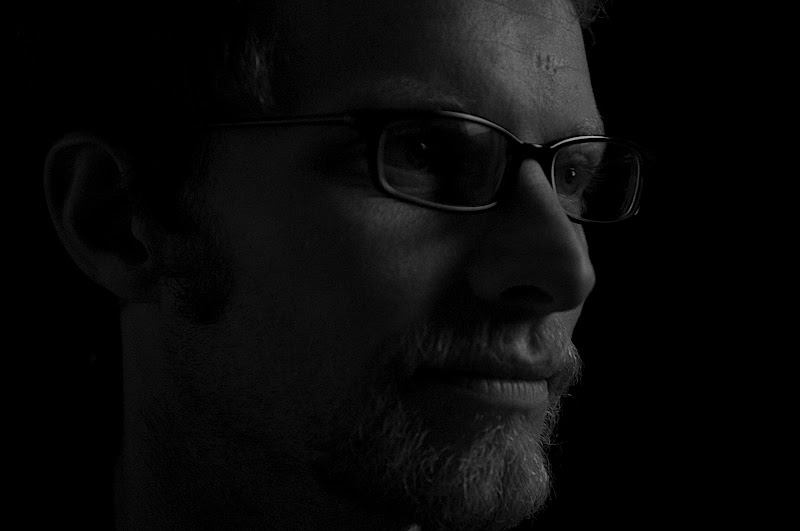
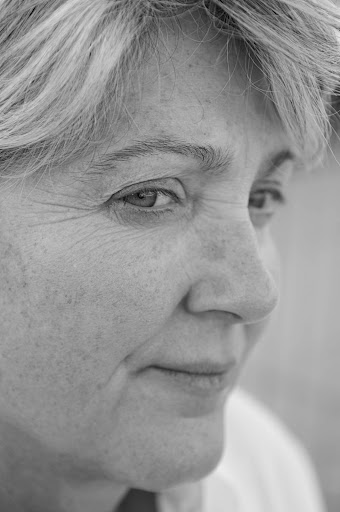
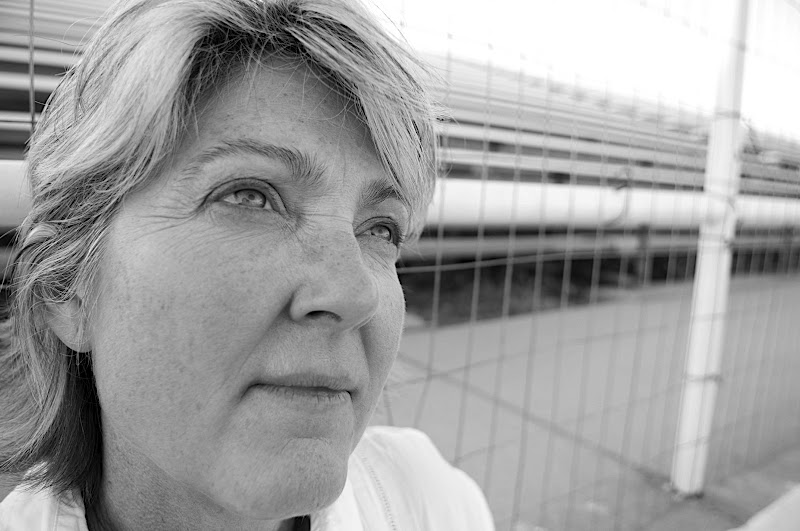
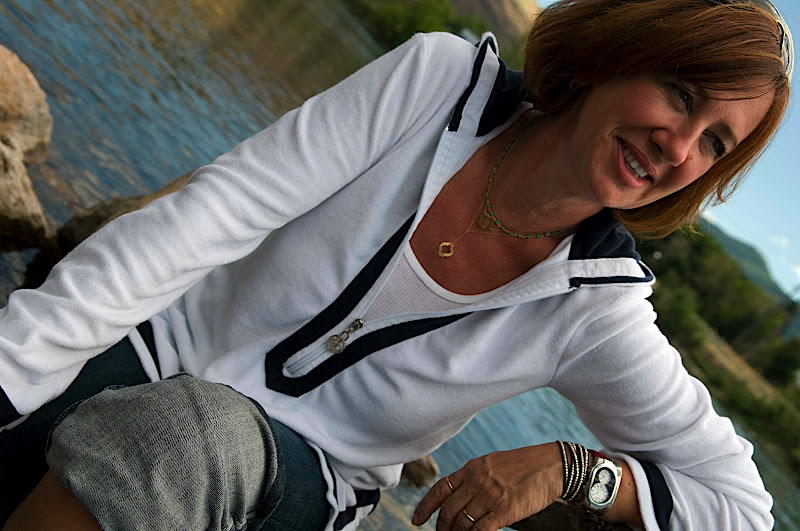





Wednesday, August 13, 2008
Homeless of Missoula
One of our assignments was to step out onto the streets of Missoula and photograph an interaction between two or more people, trying to tell a story again with only three photographs. I found a group of homeless people, several Native Americans from the Blackfeet tribe and one Caucasian male. The portrait I took of the latter—a broken face with a one way sign in the background—may be the best photograph, and the saddest, of the week. It was about 10 a.m. when I ran into these folks, and the men were already quite drunk. I bought them some food after taking some pictures, but they weren't interested. They thanked me and then asked me if I could buy them a few beers. I couldn't.


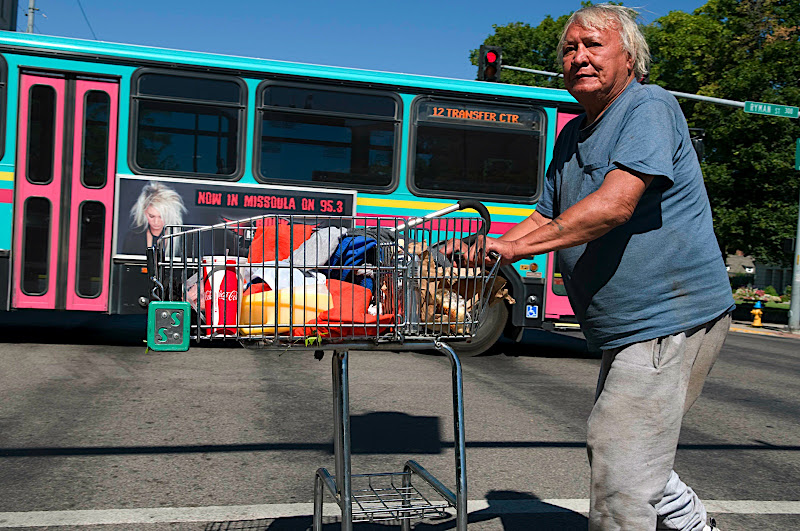



Stevensville Creamery Festival
Hello All,
It's been awhile since I've posted anything new, so I'm going to make up for it with an onslaught of postings from the last few weeks. I traveled to Missoula, MT, for a week-long workshop at the Rocky Mountain School of Photography. I drove out West in my beloved Subaru, packed to the gills with camping, biking, fishing, rock climbing, and reading equipment. I've gotten to use some of it, but not all.
Our first assignment at the workshop took place at the Stevensville Creamery Festival just south of Missoula. We were given almost no instruction, just turned loose on the crowd and encouraged to capture the essence of the festival in three pictures. I took far more than three, of course, and had plenty to choose from for the first critique. Here are some of my favorites.
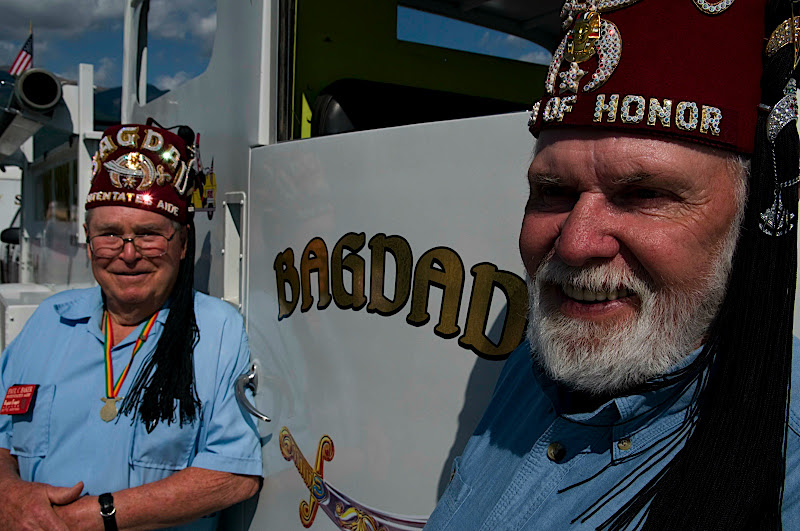
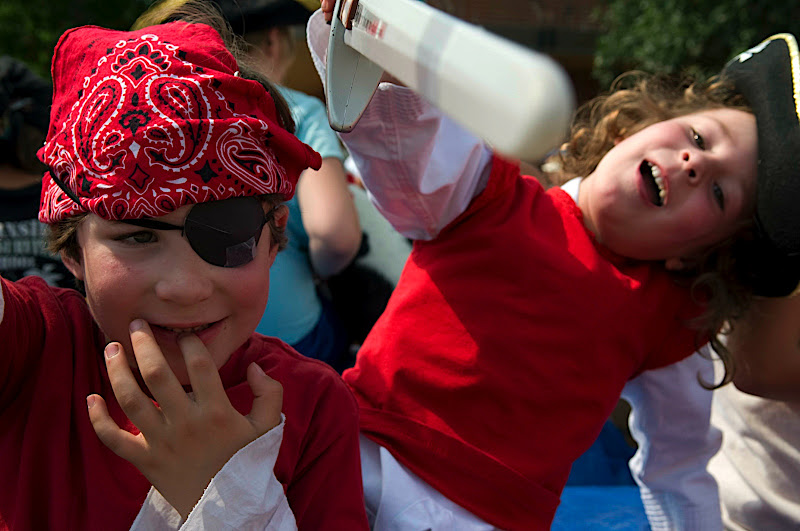
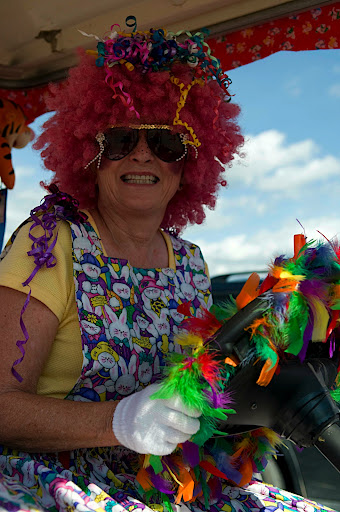
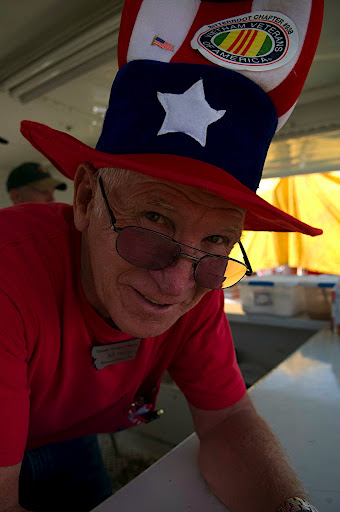
It's been awhile since I've posted anything new, so I'm going to make up for it with an onslaught of postings from the last few weeks. I traveled to Missoula, MT, for a week-long workshop at the Rocky Mountain School of Photography. I drove out West in my beloved Subaru, packed to the gills with camping, biking, fishing, rock climbing, and reading equipment. I've gotten to use some of it, but not all.
Our first assignment at the workshop took place at the Stevensville Creamery Festival just south of Missoula. We were given almost no instruction, just turned loose on the crowd and encouraged to capture the essence of the festival in three pictures. I took far more than three, of course, and had plenty to choose from for the first critique. Here are some of my favorites.

The two oldest members of the Bagdad Chapter of Shriners. The man on the left is a former Naval Aviator who earned his wings in 1943 and flew PDY missions in WWII.

These boys seemed to know only one word: "Aargh."

One of the women from the "Clowning Around" division of a female equivalent to the Shriners.

Bob Decker of Vietnam Veterans of America, working the hot dog stand.
Subscribe to:
Comments (Atom)












